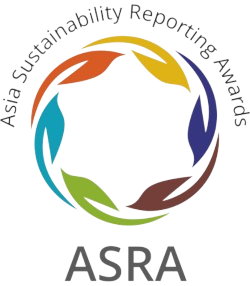HOW THE AWARDS WILL BE JUDGED
The Asia Sustainability Reporting Awards are committed to following the highest standards in awards judging. The guiding principles for judging the Awards include:
- Independent from organisers
- Integrity
- Objectivity
- Impartiality
- Avoidance of conflict of interest
- Transparency
An independent panel of judges with distinguished backgrounds assesses the entries to decide the winners. The judging panel has members drawn from diverse fields such as non-profit organisations, academia, sustainability advocacy, professional bodies, industry networks, and media to enrich the judging process. The judging panel is entirely independent of the organisers to maintain the highest possible neutrality and objectivity.
The panel of judges evaluates all submissions following rigorous criteria. Information about the judges is available here.
JUDGING PROCESS
Entries will be evaluated in three rounds:
01
First Round
In this round, an initial evaluation will be carried out by experienced ESG Analysts. The qualifying entries will then proceed to the judging round (second round).
02
Second Round
Judges will determine the finalists for each category. Each category is expected to have 6-10 finalists.
03
Third Round
In the third round, also the final round, the judges will take a closer look at the entries and will decide the winners.
WHAT WILL BE JUDGED
Only the publicly disclosed and available sustainability reports and communications will be considered for judging the entry. Information provided in the Entry Form will be taken into consideration. Sustainability information which is publicly not disclosed or available as well as future plans and initiatives will not be accepted as a basis for judging.
JUDGING CRITERIA
Judges will be using a broad set of parameters to evaluate each entry. Some of the parameters may apply to specific award categories while others may be more commonly applied. We recognise that sustainability reporting is a journey and different organisations may be at a different point in their journey. That’s why it’s not mandatory to meet the entire criteria to be a winner. However, the winners would have demonstrated that they are ahead of their peers when tested against these overall parameters.
In general, judges will be using the following parameters:
- How strong is the link between the company’s reported sustainability strategies and activities and its business strategy.
- Whether the company uses internationally accepted sustainability reporting frameworks such as GRI and Integrated Reporting. If not, whether the company uses other internationally recognized corporate responsibility principles including but not limited to ISO 26000, UNGC Principles or other guidelines relevant to the reporting organisation’s sector.
- How the company identifies, describes and addresses its most significant or material impacts and issues.
- How the company engages with stakeholders to build a more credible sustainability approach.
- Whether the report provides a clear description of goals and targets and how the progress is measured.
- Whether the report provides a clear description of the value created for the company or for its stakeholders or both.
- What is the degree of useful disclosure the company provides through the report.
- How comfortable the company is in disclosing its failures, shortcomings, under performance or sharing the negative news.
- Whether there is an independent assessment of the company’s reported performance. Examples of independent assessment may include but are not limited to:
- Views of internal or external stakeholders’ incorporated in the sustainability report in the relevant sections.
- Views expressed by an important external stakeholder or an external stakeholder panel included in the report.
- Relevant certifications disclosed in the sustainability report.
- External Assurance provided by independent assurance providers.

